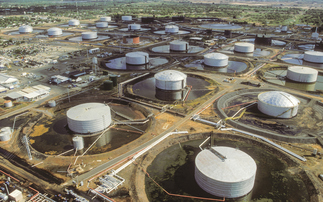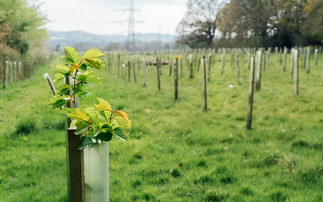Asker aims to be the first Norwegian town to incorporate UN Sustainable Development Goals into development plan - a move Moody's says will deliver long-term benefits
The trailblazing decision by a small Norwegian municipality to incorporate the UN Sustainable Development Goals (SDGs) into its post-2020 development framework will pay off through "long-term gains" to the environment, economy, and society.
That is not the view of Greenpeace or the Green Party, but the conclusion of a formal assessment undertaken by credit ratings giant Moody's.
The company published an analysis yesterday arguing that Asker's decision to embed the SDGs into its future development plans may lead to higher capital spending and borrowing costs in the short-term, but will yield a host of long-term benefits.
Asker, which is part of the Greater Oslo region of southern Norway, took the decision in 2016 to prioritise the SDGs in its 2020 development plan, confirming the move in 2018. Specifically, the town is targeting SDG3 on good health, SDG11 on sustainable cities and communities, and SDG13 on climate action, alongside efforts to support the goals as a whole.
The region has local decision-making powers that will allow it to implement the goals of the SDGs at a local level, Moody's said. The initiative also enjoys backing at the federal level - Moody's describes Norway's Prime Minister Erna Solberg as "firmly involved" in the SDG process. As such Asker will be well placed to roll out its various ideas with minimum political or legislative friction, the report concluded.
But the programme will not come without some short term impacts, Moody's warned. In particular, Moody's noted that a commitment to green buildings will lead to higher capital spending and borrowing than would otherwise have been the case. For example, a newly opened nursery and swimming pool in the town cost 44 per cent and 185 per cent more, respectively, compared to similar projects because of their low carbon credentials, Moody's pointed out.
"Asker's commitment to continue building exclusively sustainable buildings will result in higher capital spending and borrowing," Moody's stated. "This will add further pressure on Asker's debt and interest burdens, which are currently high compared to municipalities with similarly sized populations, and the wider municipal sector."
However, these increased costs are balanced by the long-term benefits the initiative will bring. For green buildings, this includes lower maintenance costs, lower energy bills, and support for local low carbon businesses.
Moody's also pointed out that the SDGs the town is targeting are specifically aimed at reducing economic losses related to social and environmental externalities, such as air pollution, poor public health, and inefficient municipal and industrial processes.
"These objectives ultimately aim to improve the long-term attractiveness of Asker by increasing sustainable economic activity, enhancing quality of life and improving the surrounding ecology," Moody's said.
The findings back up wider research into the potential economic impact of the SDGs. The landmark Better Business, Better World report concluded in 2016 that meeting the SDGs would create $12tr of economic opportunities through to 2030 across just four sectors: food and agriculture, cities, energy and materials, and health and well-being.
"Achieving the Global Goals would create a world that is comprehensively sustainable: socially fair; environmentally secure; economically prosperous; inclusive; and more predictable," the report stated. "They provide a viable model for long-term growth, as long as businesses move towards them together."
Separate analysis in November 2018 found 13 corporates with SDG-aligned business strategies generated almost $233bn of 'SDG-aligned' business revenues in 2017, equivalent to as much as 87 per cent of their entire revenues that year.










